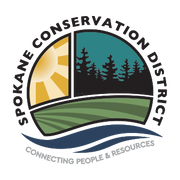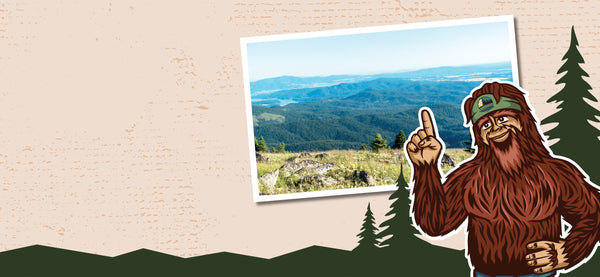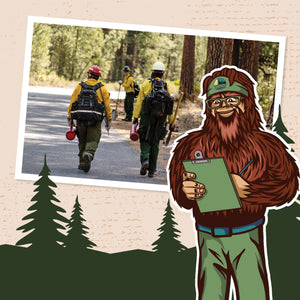
What is Firewise?
It is important that landowners in Spokane County learn about preparing their home and community to be more resilient to wildfires. By employing Firewise principles, residents can take proactive steps to mitigate risks.
Spokane County residents are entitled to receive a FREE Firewise Risk Assessment to evaluate their home's risk. A District Forester will visit your property for approximately one hour and will provide you with a list of practical ways to lessen your wildfire risk.
Central to reducing these risks is the concept of defensible space. This refers to the area surrounding your home, modified to decrease the threat of wildfire and facilitate effective firefighting. The size of this space will vary based on factors such as slope and vegetation type, determined during the assessment.
To schedule a Firewise risk assessment of your home site, or if you have questions about protecting your home from a wildfire, contact Ben Peterson at ben-peterson@sccd.org

Hazard Fuel Reduction
In the Spokane region, fire has long been a natural part of the environment. Here, it’s not a question of if a wildfire will happen, but rather when they will occur.
For residents in forested areas, proactive steps can safeguard property and preserve valuable timber resources. One crucial measure of the hazard Fuel Reduction project, aimed at diminishing the accumulation of combustible materials in the forest. These materials include natural vegetation, debris from forestry activities, and small trees or brush that can fuel ground fires into the canopy.
As a result of your Firewise Risk Assessment, a Hazard Fuels Reduction plan may be recommended. Cost-share is available through SCD and its agency partners including the Department of Natural Resources (DNR). Learn more at: www.dnr.wa.gov
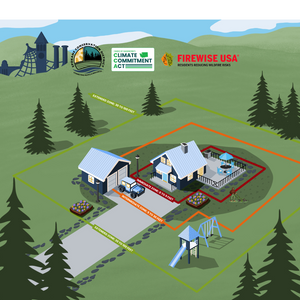
Home Hardening Program
Experience and research have revealed that embers and small flames are the leading cause of home ignition in wildfires. Embers are burning pieces of airborne wood and/or vegetation that can be carried more than a mile through the wind and can cause spot fires and ignite homes, debris, and other objects.
The Home Ignition Zone Cost-Share Program is designed to help homeowners prepare for and minimize the risk of wildfire damage to their homes. SCD’s Home Ignition Zone program focuses specifically on the area within 0–5 feet from the home and/or structure and is limited to homeowners who live adjacent to forest land or other undeveloped, natural areas.
Our Free Assessments can take up to an hour and include:
- Basics of wildfire behavior and how homes ignite
- Important home ignition risks
- Easy steps to reduce the threat of unnecessary losses
Click here to sign up for your free risk assessment.
Please fill out this form if you are interested in adding your business listing to our contact list for Home Hardening projects.
General Tips for preventing wildfire damage
Elevate the security of your home by utilizing noncombustible materials in its construction.
Remove all dead branches that are hanging over your roof.
Clean dead leaves and needles from your roof and gutters.
Keep all woodpiles at least 30ft away from all structures and clear all vegetation within 10ft of the woodpiles.
Minimize the use of ornamental conifers in your landscaping; opt instead for low-growing herbaceous varieties like groundcovers and bedding plants.
Each Home Ignition Zone project will begin with a visit from an SCD Forester
The SCD Forester will perform an evaluation of wildfire hazard risks within the home ignition zone. During the HIZ contract development, all wildfire risks will be prioritized, and practices should be installed in the order of highest risk.
Forestry Technical Assistance Request
Our dedicated staff of foresters and arborists are here to help! All
technical assistance services are available to residents of Spokane County.
We offer a range of services including Firewise/HIZ Assessment,
Tree/Landscape Assessment, Hazard Tree Risk Assessment, and Forest Technical
Assistance.
Supported by

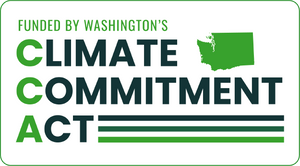
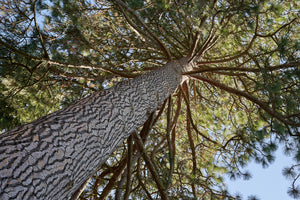
Firewise Contact
ISA Certified Arborist
Allison Ranusch | Forester | 509-535-7274, ext. 238 | Allison-Ranusch@SpokaneCD.org
ISA Certified Arborist
Ben Peterson | Forester | 509-535-7274, ext. 215 | Ben-Peterson@SpokaneCD.org
Program Manager
Garth Davis | 509-535-7274, ext. 212 | Garth-Davis@SpokaneCD.org
